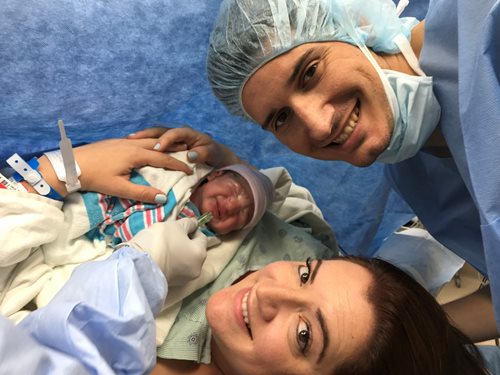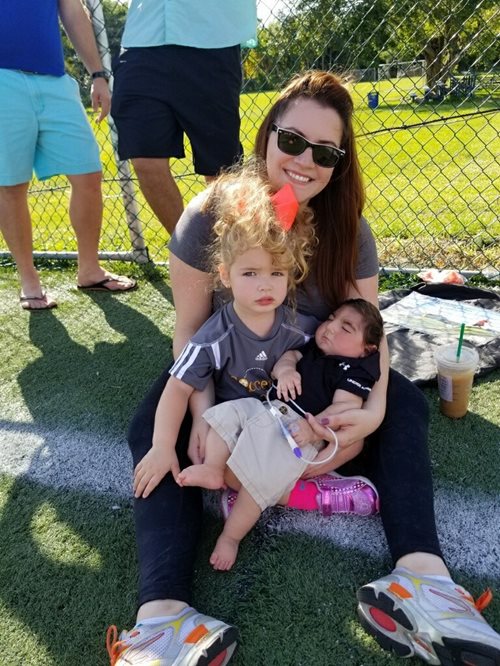Three days in the hospital, 44 medical appointments, numerous X-rays and ultrasounds, two urinalyses, three blood draws, a salivagram and a swallow study. This was the medical agenda for baby Julen in May 2019, the last full month he was able to be mostly at home with his family. After that, the little boy’s condition deteriorated and he was hospitalized for most of the rest of his days.
Born with an unknown genetic syndrome, every day was a struggle for the little boy, who lived half his brief life in a hospital bed. By the time Julen was 14 months old, he had undergone numerous genetic tests. Yet none gave a name to the child’s mysterious condition.

“Julen taught me strength,” says his mother Laura. “He opened us to the world of special needs children, where everything – eating, sleeping, breathing – is a struggle.” Together the family pursued every possible test, treatment and therapy avenue, wanting to offer Julen the best possible future. Still his condition did not improve.
Then, emerging medical science opened a door. Dr. Mislen Bauer, geneticist at Nicklaus Children’s, offered Laura and her husband Andoni the opportunity to have Julen receive whole genome sequencing as part of a medical research study. The study, offered by Nicklaus Children’s in collaboration with Rady Children’s Institute for Genomic Medicine, will help researchers discover whether WGS should be part of future standard of care, providing answers to families like Julen’s who have been on a “diagnostic odyssey. ”
WGS – which maps a patient’s entire genomic structure – revealed a variation in a one of Julen’s genes associated with renal and other essential functions. Sometimes WGS finds answers to guide clinical care and help children improve. In Julen’s case, the family was met with the heartbreaking news that his condition was terminal and that further medical heroics would only bring him more pain.
“The day we got the news he was suffering so much. We knew that he was going through so much pain because of our determination to keep him with us,” recalls Laura. The family decided that at last it was time to withdraw the needles and tubes, and simply hold and love their precious little boy.

Julen passed away soon after. Laura and Andoni have peace knowing they did all that they could to help their son and that he is no longer in pain. They recall the special moments they had as a family with Julen and their preschool age daughter: Visits to the beach, Disney World, parties and Julen’s favorite activity, basking in a warm place in the backyard.
WGS has also provided the couple with the information they need to one day move past fear and consider bringing a new baby into the family. Knowing the genetic source of Julen’s disorder, the family can glimpse a future with a healthy new baby, made possible with the help of invitro fertilization.
Laura and Andoni have found a beautiful way to keep Julen’s memory with them. Their foundation – Julen Smiles – offers funding and support for families of special needs children.
“We are so grateful for the WGS study. It has helped us find answers and peace and offers us hope for the future,” said Laura. “I hope all families in need have access to this resource.”